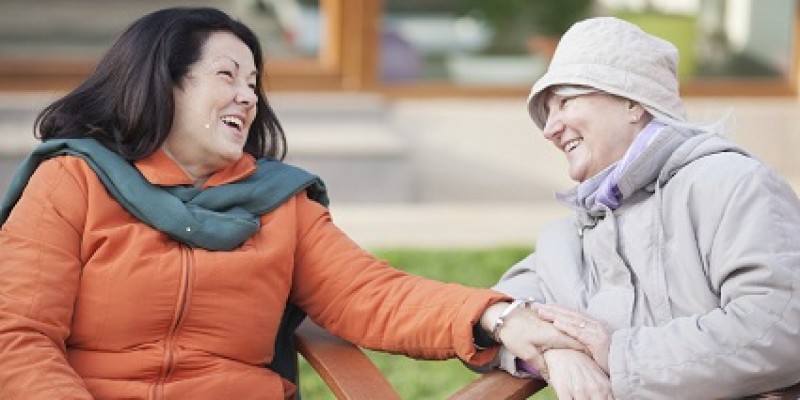
Sarah Van Putten, Chief Executive of Befriending Networks, prepared this useful briefing for the Cross Party Group on Volunteering”s meeting in January and has kindly permitted VHS to reproduce it. She points out it is not an attempt to summarise the whole loneliness and isolation strategy but takes a look at where the strategy and volunteering intersect.
The Scottish Government’s strategy to tackle loneliness and isolation A Connected Scotland was launched in December 2018 as set out in the Programme for Government. It recognises “Social isolation and loneliness can affect anyone – at all ages and stages of life. As our society changes, there is increasing recognition of social isolation and loneliness as major public health issues that can have a significant impact on a person’s physical and mental wellbeing.”
It sets out a clear vision for Scotland stating: “We want a Scotland where individuals and communities are more connected, and that everyone has the opportunity to develop meaningful relationships regardless of age, status, circumstances or identity.”
It sets out four priority areas:
- Empower communities and build shared ownership
- Promote positive attitudes and tackle stigma
- Create opportunities for people to connect
- Support an infrastructure that fosters connections
Although within these it recognises that it will take a cross-government and sector approach and makes reference to many other existing or soon to be announced strategies. Such as the Older People’s Framework due out in March 2019, which it suggests is likely to include aspects linking to volunteering (page 32) and of course the National Volunteering Outcomes Framework (page 55).
The strategy sets out early actions including the establishment of a Ministerial Steering Group to maintain oversight, to drive forward progress and tackle emerging issues, and a National Implementation Group to drive forward a cross-sectoral approach, through the development and implantation of a shared delivery plan and a shared performance framework. The membership of this group announced on 29th January includes Scottish Government, COSLA, Transport Scotland, Architecture and Place Scotland, Joseph Rowntree Foundation, NHS Health Scotland, and sportScotland, alongside seven third sector organisations.
The strategy will run from 2018-2026 after which it will be reviewed and updated. Progress reports will be every 2 years, so its first report is due 2020.
National Implementation Group membership in full:
Scottish Government
COSLA
Voluntary Health Scotland
Befriending Networks
Campaign to End Loneliness
Transport Scotland
Architecture and Design Scotland
Age Scotland
Chest, Heart and Stroke Scotland
Joseph Rowntree Foundation
Youthlink Scotland
NHS Health Scotland
Generations Working Together
sportScotland
The links to volunteering
The words volunteer/volunteering get mentioned 43 times in the document and appear in a variety of sections, all evidencing the importance given to volunteering in both tackling and preventing social isolation and loneliness.
It recognises Volunteer Scotland’s report on “Volunteering, Health and Wellbeing” and its links to reducing social isolation and loneliness, and uses the Scottish Household Survey statistics about volunteering as part of the evidence base. Throughout the strategy the voice of the third sector and volunteer-involving organisations is clear and prominent both in the text and in the spotlight sections highlighting practice.
Priority 3: “Create opportunities for people to connect” is the main direct link to volunteering:
- Raise awareness of opportunities: Third Sector Interfaces (TSIs) are a key point of intelligence within local areas; how can good practice be shared across the TSIs; alongside the work of Scottish Council for Voluntary Organisations (SCVO) and The ALLIANCE regarding online information platforms.
- Promote Befriending: Recognises the vital role befriending plays (a service normally delivered by volunteers) and often to those already experiencing social isolation and loneliness, and is committed to supporting and developing this.
- Promote Physical Activity: Recognises the value of sport and physical activity – we know the numbers of volunteers involved in delivering grass root sports in our communities.
- Promote and enable volunteering: “Volunteering, in all its forms, is central to ensuring that Scotland successfully achieves ambitious and meaningful change for those facing social isolation and loneliness. We recognise that volunteering has wide ranging benefits for the individuals involved, both those who give their time to help and people who use services. But it also has a positive impact on communities, and can go a long way to help building the connected Scotland we want to see.”
The strategy recognises that volunteering has been relatively stable in Scotland and there remains a challenge to engage those from less affluent areas or facing barriers to volunteering. It states an ongoing commitment to the Volunteer Support Fund. In addition, it recognises the need to identify ways to encourage older people to volunteer, given the positive impacts on them and also our changing demographics (this links back to evidence from Volunteer Scotland). Here it links to the upcoming National Volunteering Outcomes Framework and looks to this to drive forward participation.
